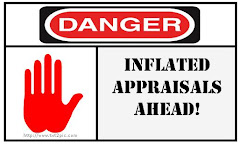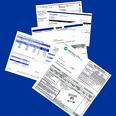Robert Shumake Mortgage Fraud Report: Michigan is among the Top 10 States
Mortgage fraud is defined as the intentional misrepresentation of information, by applicants, loan officers or other parties, which is relied on by an underwriter to provide funding for a mortgage loan.
Mortgage fraud is divided into two categories: fraud for property and fraud for profit. Fraud for property or housing involves misrepresentations by the applicant for the purpose of purchasing a primary residence. Although applicants may claim more income and less for expenses in order to qualify for the loan, they usually do intend to repay the debt.
Fraud for profit often involves multiple loans and elaborate schemes generated to gain commissions or proceeds from property sales. This is the category that is of the most concern to law enforcement within the mortgage industry. Inflated appraisals and misrepresentations on loan documents are common in fraud for profit schemes and participants are frequently paid for their participation.
Many reports on real estate and mortgage fraud have been released in the last few years. The downward trend in the housing market will continue to provide further incentive for shady real estate deals and dishonest practices for earning a profit. Michigan is among the top 10 states for mortgage fraud with the largest share of fraud being in the north-central region of the United States.
The subprime lending practice is a major contributing factor to real estate and mortgage fraud. Subprime loans were designed for people with poor credit or limited credit histories. These high-risk loans have contributed to well over 2 million foreclosures filed during 2007. The increasing real estate values lead to relaxed lending practices in the industry and created more opportunities for scam artists to prey on vulnerable homeowners.
Some of the latest mortgage scams include builder-bailout schemes where developers unload excess inventory through financial trickery and foreclosure help scams where distressed homeowners are tricked into signing over the deed to their home. Others include seller-assistance with the use of false appraisals to sell homes and identity theft leading to home equity credit lines being opened and drained.
Mortgage Fraud in a Depressed Market
The increasing interest rates and the declining housing market have contributed to the high foreclosure rate. As homes depreciate and the demand for housing decreased, distressed homeowners are unable to sell their homes for what is owed on them. During declining markets, mortgage lenders are likely to commit mortgage fraud to earn commissions.
The housing market is expected to continue to decline; therefore, reducing the amount of mortgage loan originations in 2009. As values decline and mortgage guidelines get tougher, fraudsters will devise new and improved schemes to exploit the weaknesses in the market.
Robert Shumake and Son
15 years ago







